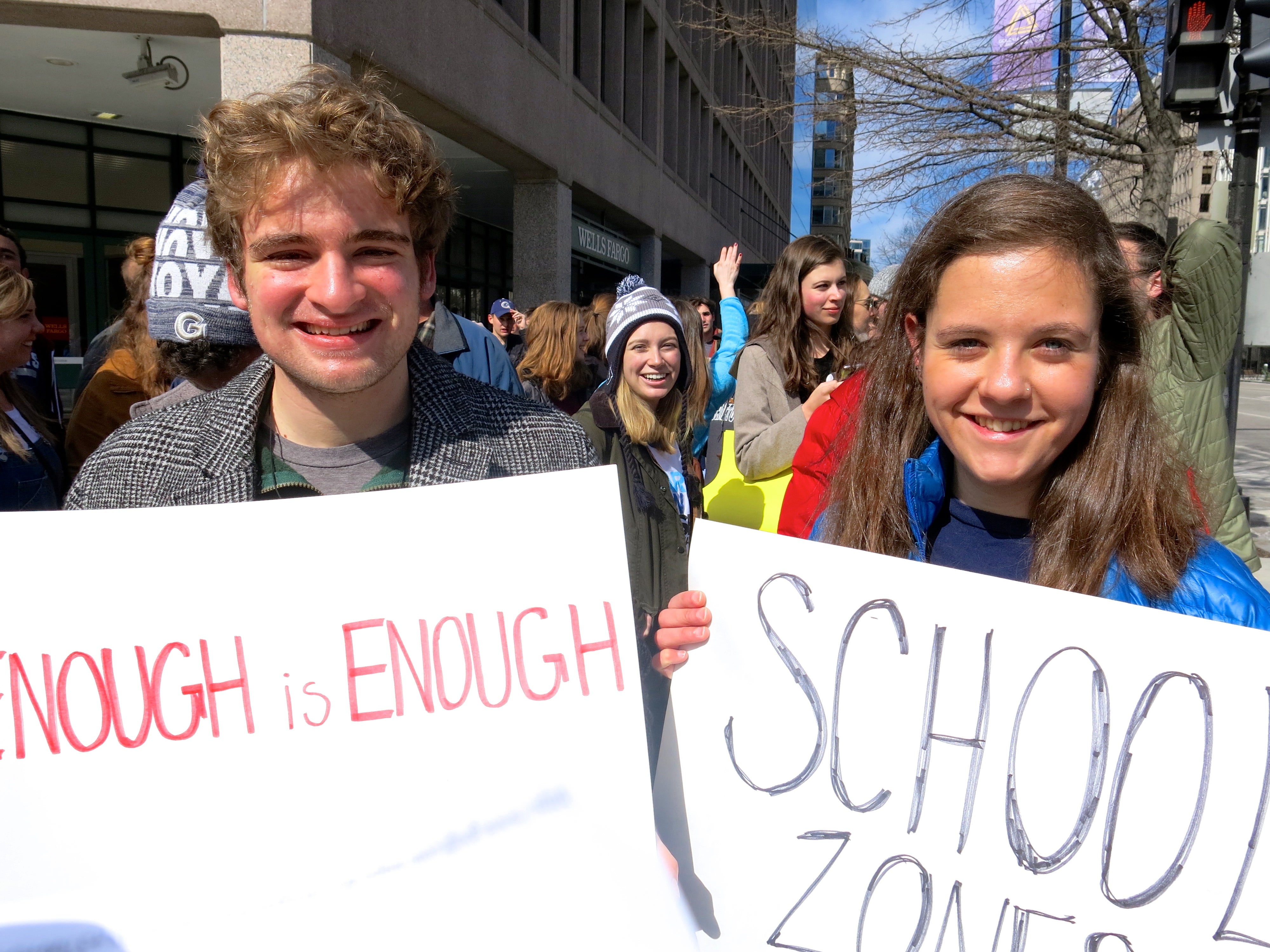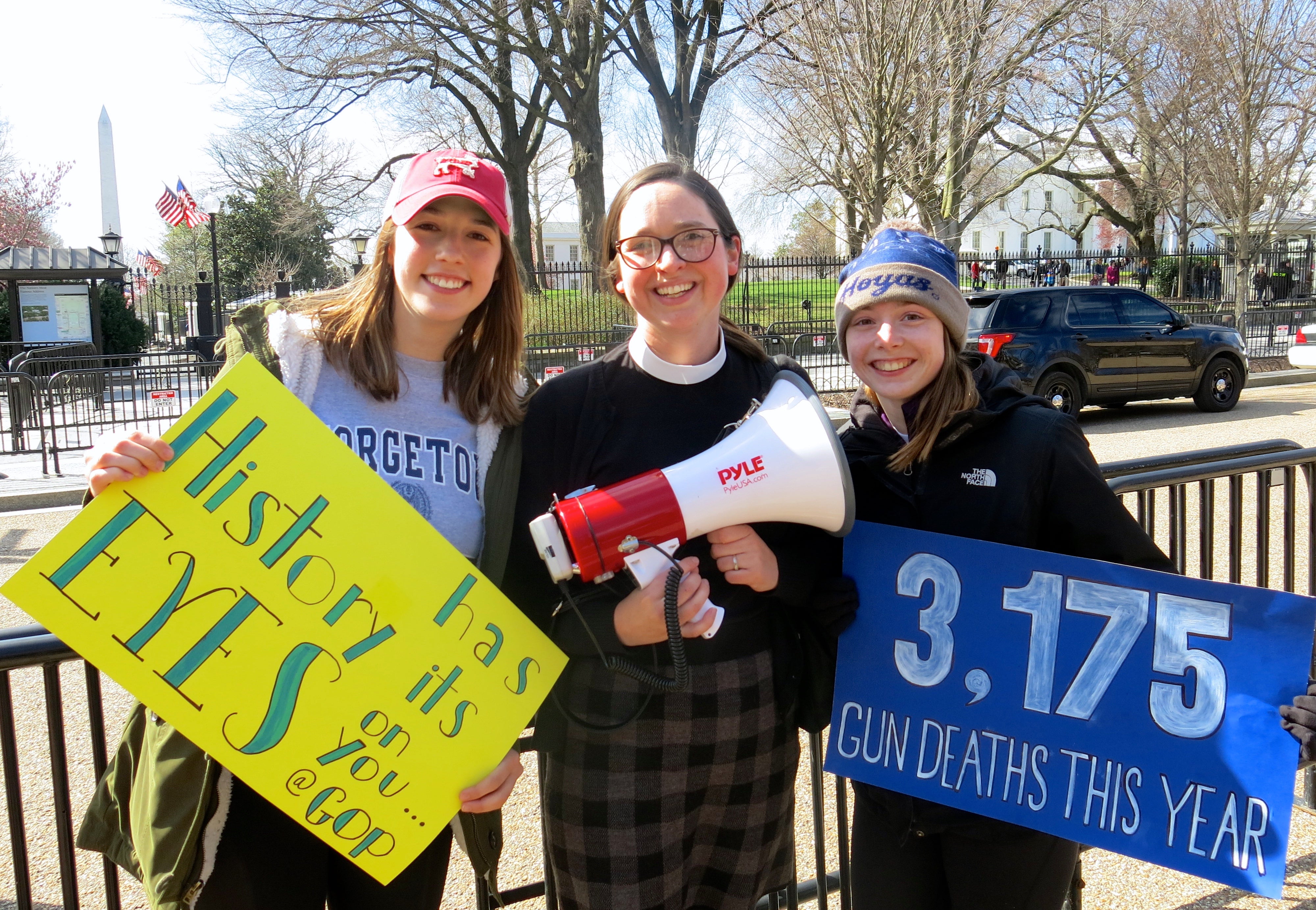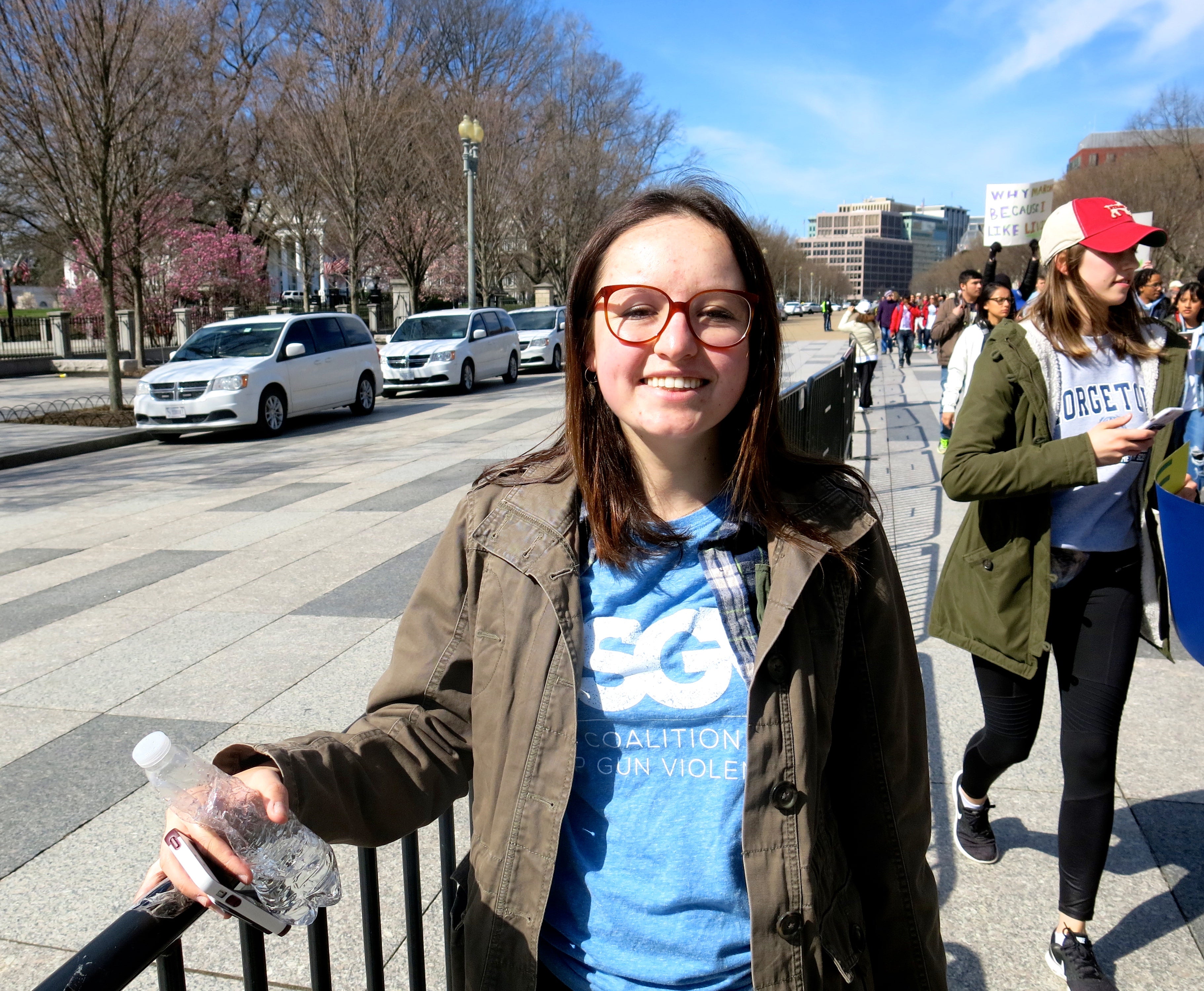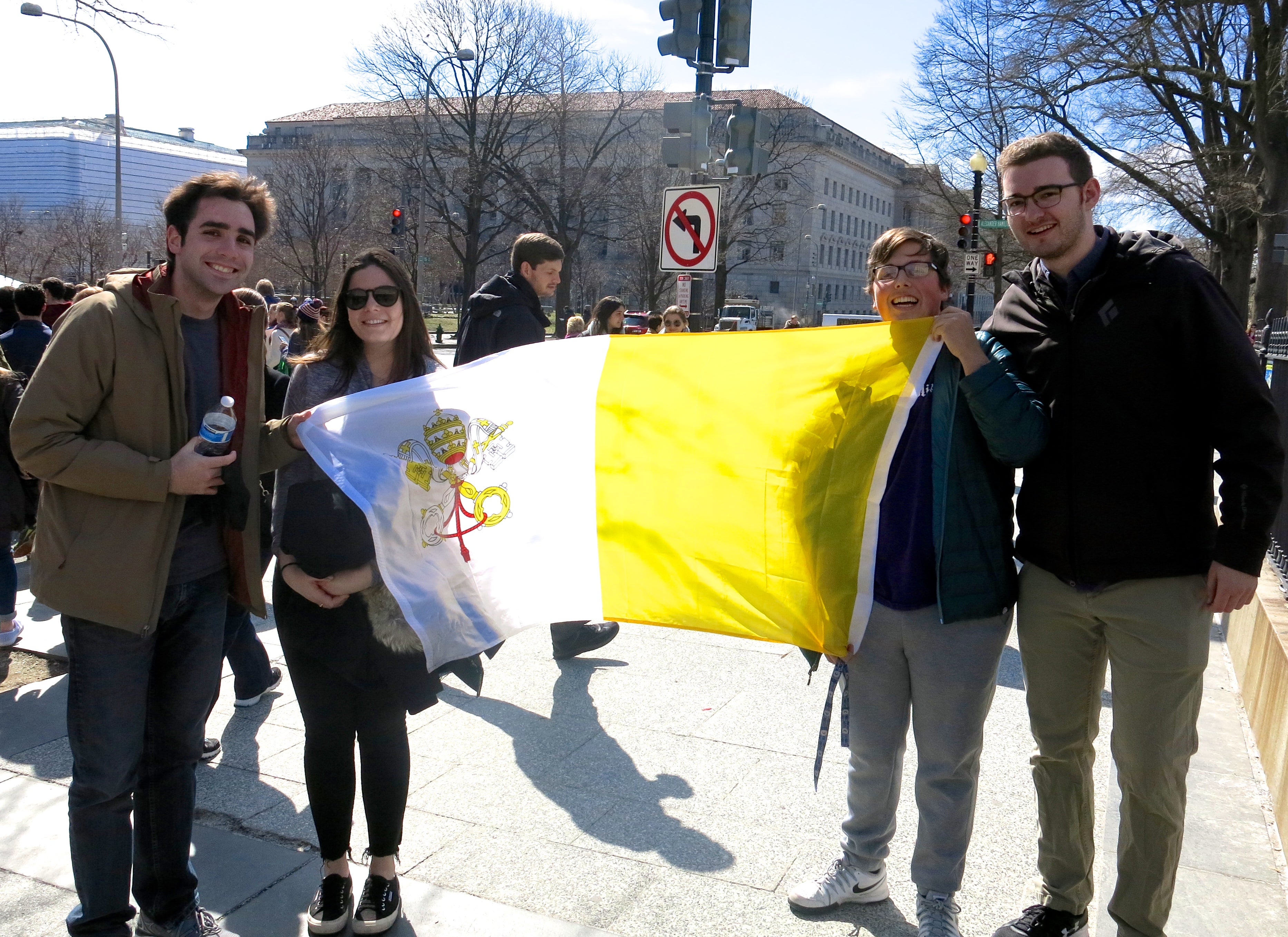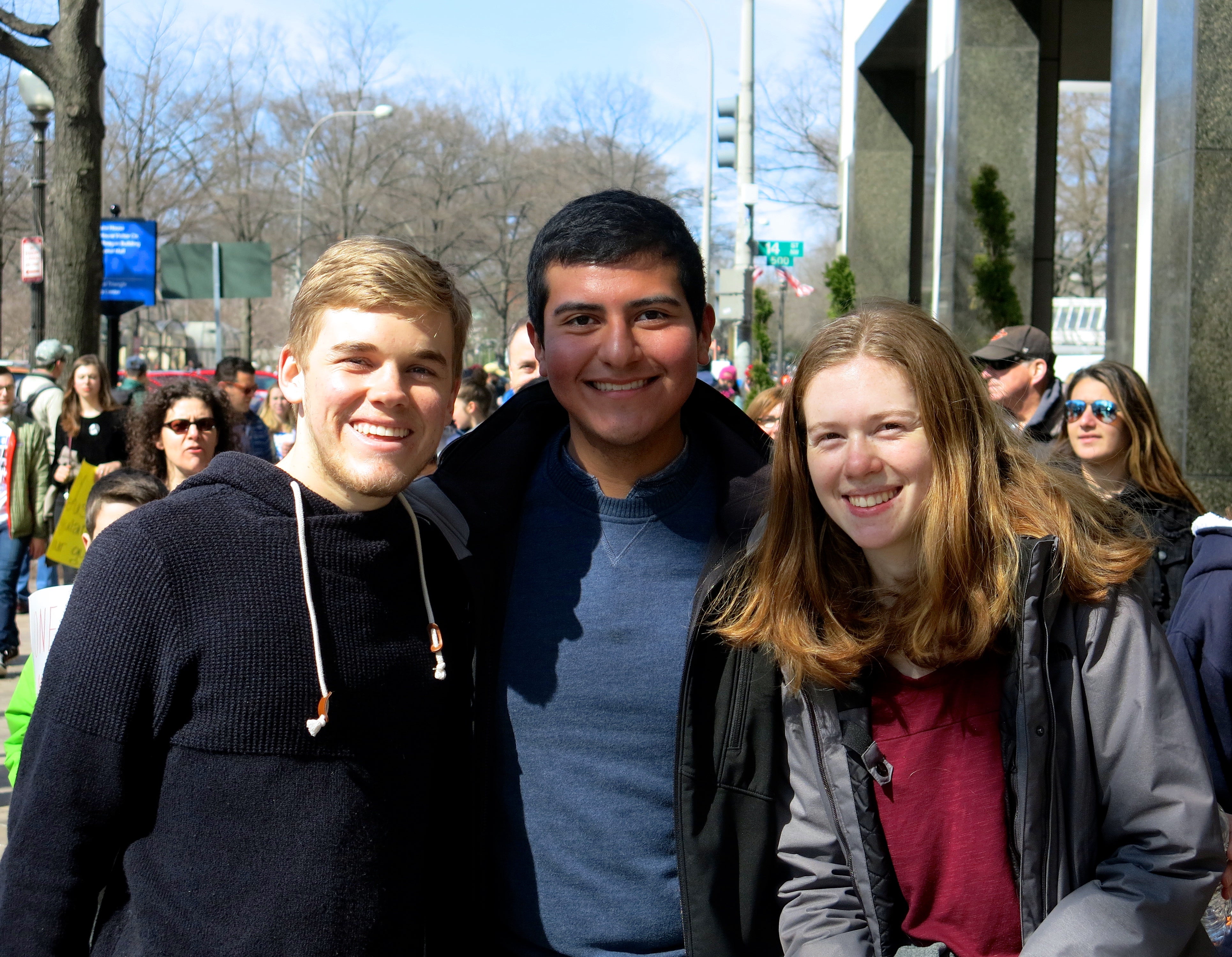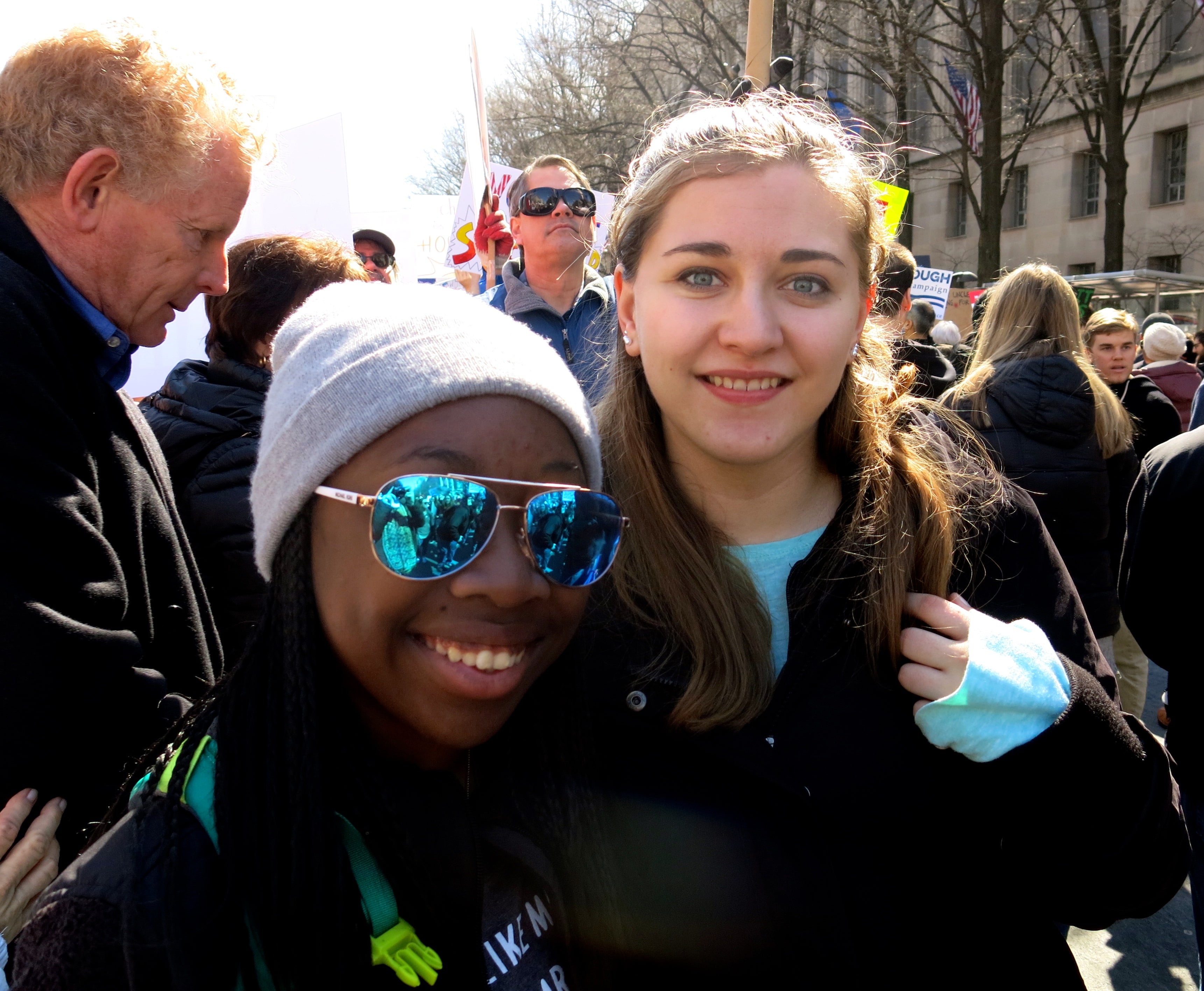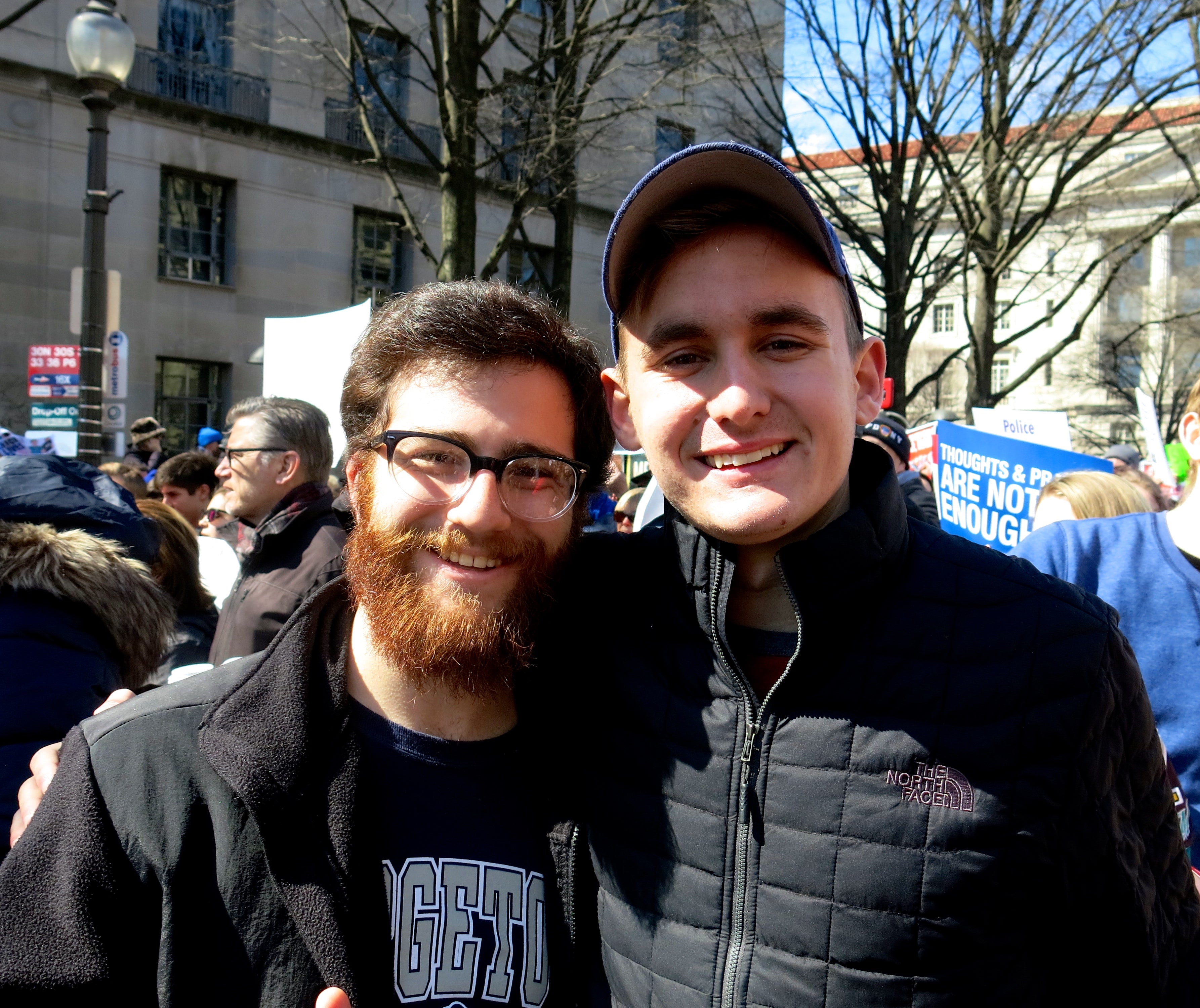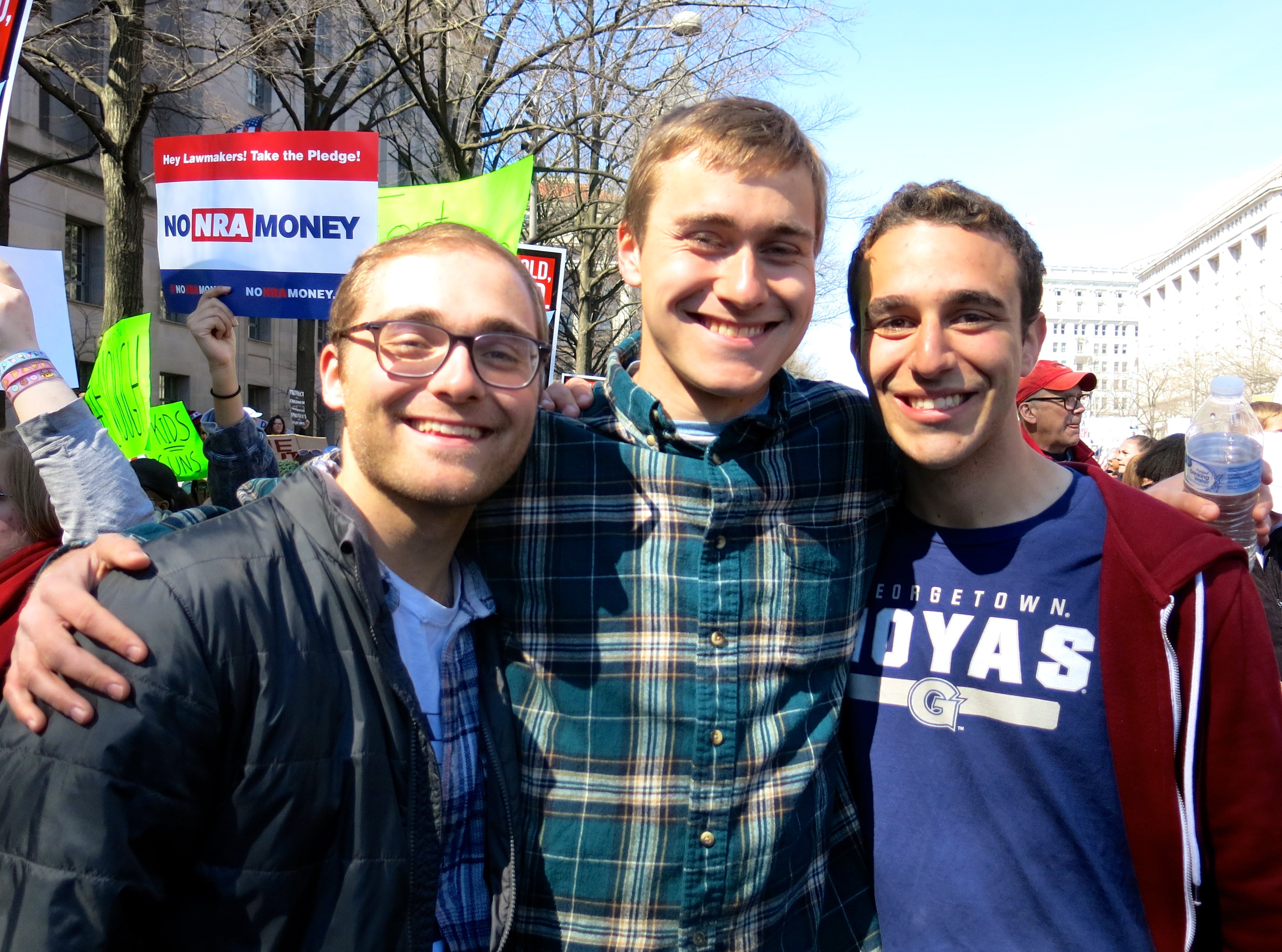Standing for Solidarity, Marching for Change
On the morning of Saturday, March 24, Campus Ministry hosted students for a special interfaith prayer, breakfast, and reflection before walking together to Capitol Hill for the March for Our Lives, a national student-led demonstration in support of tighter gun control. Several students were deeply moved both by the events leading up to the march and the march itself – they share their thoughts here:
Jack Thorman (left), Jewish: I felt incredibly lucky to be at the March for our Lives on Saturday. For the first time in a while, I felt hopeful for the future. It was a statement from our generation that we will not sit idly by as long as those in power continue not to represent our interests. I also could not have been more proud of Campus Ministry than I was on Saturday. The Jewish community and the wider Campus Ministry at Georgetown continue to be spaces that inspire and embolden me to speak up in the face of injustice.
Andrea Dressel (left), Lutheran: I am so thankful I was able to attend the march on Saturday. For the first time in a while, I feel as though my opinion as a young person in the political sphere is important and even necessary, and this validation was a breath of fresh air. I am also grateful I was able to attend with an interfaith group of Georgetown students and faculty. As a Lutheran, my personal faith practice animates much of my social justice work, and I love having a faith community here at school that lifts one another up in doing God’s work. I’m inspired by the love and passion I saw on Saturday and I pray that it will continue in the coming months to build a safer world.
Rev. Becky Zartman (center), Episcopalian: Within one week in March, Commonplace, the Episcopal-Lutheran campus ministry, went to go see Wrinkle in Time and also attended March for our Lives. These events may seem unrelated, but they aren’t. Written by a faithful Episcopalian, Wrinkle in Time is the story of an unlikely heroine’s dangerous quest to retrieve her father and fight the forces of evil with no weapons, no violence, no killing. On her quest, the main character, Meg Murray must trust a strength that looks like weakness, rely on faith that looks like foolishness and defeat evil not with evil but with goodness and love. When we, as individuals, choose the non-violent struggle against the evil that permeates our world, we are all Meg Murray. Even though our peaceful witness seemed like foolishness to those who prefer the power of guns, this is how love defeats violence. We can do this. We must do it.
Claire Goldberg, Jewish: The March for Our Lives was one of the most uplifting and inspiring things I’ve ever participated in. Getting to see people from all backgrounds, all walks of life, seeing the Veterans for Gun Reform, seeing all the people from the Religious Action Committee, struck me with so much love and hope. Gun violence is an important issue to so many people for so many different reasons, and to get to see students participate in an interfaith prayer before the march and then rise to action proves that it’s not just thoughts and prayers that matter, its action, and organization.
Bryant King (far left), Roman Catholic: Participating in the March for Our Lives with my interfaith brothers and sisters was a powerful experience. Following the example of Cardinal Cupich and other leaders in the American Church, I was driven to stand up with hundreds of thousands throughout our country calling for justice and the protection of the vulnerable. Faith is not a passive act and it was amazing to be in the presence of so many working for the common good. It’s my hope that people of faith will continue to bend Dr. King’s arc toward greater justice in our society (Amos 5:24).
Adam Wagner (left), Protestant: For me, marching was about showing solidarity and support for a cause bigger than myself. Hearing from such inspirational youth leaders and being surrounded by such passionate people was uplifting. The march was important because it provided a space to manifest a collective movement; however, going forward, we must continue to press for change. Personally, this means approaching activism the same way I approach my faith: making it an integral part of me by reflecting, engaging in dialogue with others, and never ceasing in the battle for love and justice.
Zeke Gutierrez (center), Roman Catholic: I participated in the March for Our Lives on Saturday, March 24 with the goal of demonstrating my support and unity to the victims of gun violence. I feel this was an issue that affects multiple communities and the movement finally highlighted the need for gun reform. As a Catholic at Georgetown, the friends and members of the community I marched with understood the need for reform as an issue of greater social justice. Being part of the prayer in the morning helped set the tone of the march where I felt closer to my faith.
Brandi Coleman (left), Protestant: Words can not describe how emotional this day was. There was a moment during the march where I stopped and just reflected. I was absorbing just about everything and trying to harness my emotions. There are so many unexplainable events that occur in this world, but the one that occurred at Stoneman Douglas High School was not one of them. When our lawmakers finally realize gun control is not an issue they can slide under the rug this country will have a chance to prevent such acts of atrocity. As kids, we were always told we would change the world someday. I don’t think I could have ever imagined just how desperately the world, our home, needs us. We are the generation that has the power to change it all and I pray my generation can do so. I pray my children’s children are not fighting the same uphill battle we are now. Today was a lot of things: sad, frustrating, and unfortunate that it had to occur, but most importantly it was empowering. To dream big dreams was instilled in my generation. It’s now time to turn those dreams into a reality. After seeing what I saw today, standing in the midst of greatness, and being led by the powerful youth of my generation I’d say the future looks brighter.
- Tagged
- Interfaith
